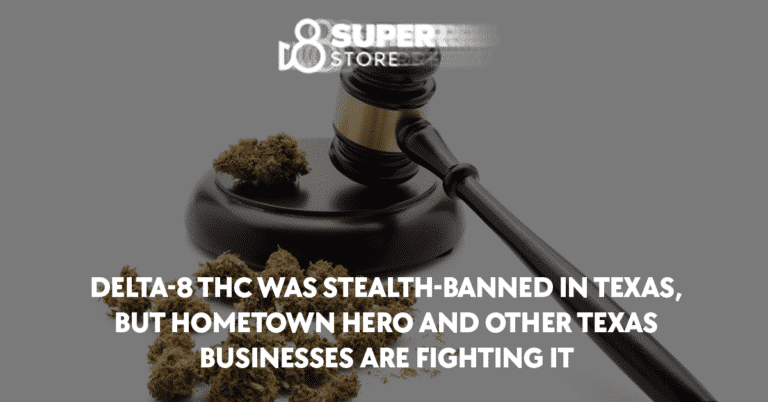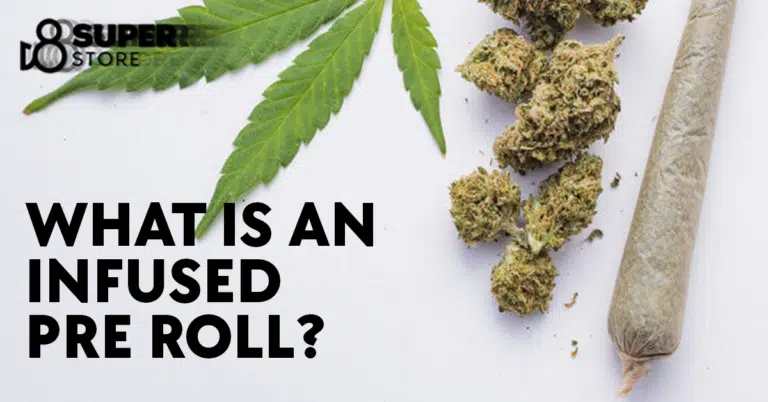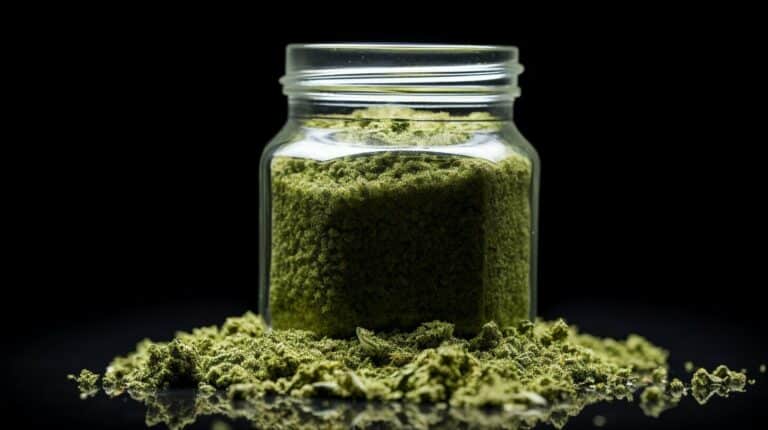Is Delta-11 THC Legal in Oklahoma? State Laws and Regulations Update
Diving into Oklahoma’s world of cannabinoids, and talking delta-11, is like entering a wild maze filled with “yeses” and “nos.” Now, delta-11 is part of the giant cannabis family, but figuring out if it’s cool or not is as tough as spotting a hidden treasure, all thanks to rules that flip faster than pancakes. Have a look at the 2019 Farm Bill? It’s kind of giving a thumbs-up to hemp goodies with a tiny bit, less than 0.3%, of delta-9 THC, yet it sort of forgets to mention delta-11 and its pals. So, for those curious about the delta-11 scoop in Oklahoma, get ready! We’re diving into a legal jungle, and oh boy, it’s an adventure filled with unexpected twists and fun facts that you’re gonna love.
In Oklahoma specifically, your ability to access and use delta-11 can be influenced by state laws that are separate from federal regulations. The state has its own set of policies governing cannabis and hemp products that you must consider. While Oklahoma has a medical marijuana program allowing for legal use of higher THC cannabis under certain conditions, clarity on the status of delta-11 specifically may require interpretation of existing statutes or further legislative action.
Table of contents
Assessing the legality of delta-11 in Oklahoma requires a careful look at current state laws, and it is advisable to stay informed as policies may change. You should always consult legal expertise or relevant state authorities to ensure you have the most up-to-date information regarding the legal landscape of cannabinoids in your area.
Overview of Hemp and Its Legal Status
In the United States, the legality of hemp has significantly shifted in recent years, specifically with the passage of the 2018 Farm Bill, and this has affected the status of cannabinoids derived from hemp, including Delta 11 THC.
2018 Farm Bill and Hemp Legalization
The 2018 Farm Bill marked a pivotal change in federal law by federally legalizing hemp, a type of cannabis plant with low psychoactive cannabinoid concentrations. Specifically, any cannabis plant containing no more than 0.3% THC (tetrahydrocannabinol) by dry weight is classified as hemp and is thus removed from the Controlled Substances Act. This bill allows you to legally grow, produce, and sell hemp and hemp-derived products across state lines under certain regulatory conditions.
Delta 11 THC and Its Legal Status
When discussing cannabinoids, Delta 11 THC (tetrahydrocannabinol), also known as tetrahydrocannabihexol, is a compound that has sparked legal ambiguities. While federally legal under the definition of hemp, the legality can vary by state law. In Oklahoma, for instance, the law excludes industrial hemp from the definition of controlled substances, aligning with federal law. However, it’s essential to note that regulatory clarity is still evolving, and legality may differ for cannabinoids like Delta 11 that are synthesized from legal hemp derivatives.
Delta 11 THC Specifics
Delta 11 THC, a cannabinoid like its cousins Delta 8 and Delta 9, is under scrutiny regarding its legality and effects. Here, you’ll get insight into how Delta 11 compares to other cannabinoids and what science suggests about its psychoactive properties.
Delta 11 THC vs. Other Cannabinoids
Delta 9 THC is the primary psychoactive component in cannabis, known for its potent effects. Delta 8, a less prevalent isomer, has a similar structure but is typically less psychoactive. Delta 11 THC emerges as a cannabinoid with a molecular structure distinct from Delta 8 and Delta 9, prompting different interactions with the body’s endocannabinoid system.
- Delta 9 THC: Most researched; strong psychoactive effects.
- Delta 8 THC: Milder psychoactive effects; considered more relaxing.
- Delta 11 THC: Less documentation; effects and potency not fully understood.
Understanding Delta 11 THC and Its Effects
Research into Delta 11 THC lags behind its more famous relatives, yet interest is increasing due to its unique effects. Preliminary information suggests psychoactive potential, with personal accounts indicating it may differ in intensity and experience when compared to Delta 9 and Delta 8.
- Psychoactive Nature: Reports hint at a distinct psychoactive profile, not as extensively researched as Delta 9 THC.
- Effects: Anecdotal accounts mention variations in clarity, euphoria, and duration compared to other cannabinoids.
Remember, while your curiosity might be piqued, comprehending the nuances of Delta 11’s legality and impact necessitates staying abreast of evolving research and legislation.
Oklahoma State Laws on Hemp Derivatives
In Oklahoma, your understanding of hemp-derived products’ legality hinges on discerning state law as it pertains to cannabis. Hemp derivatives, including those with varying levels of THC, are subject to regulation.
Current Oklahoma Regulations
Oklahoma law distinguishes between marijuana and industrial hemp based on the THC content. Industrial hemp with a delta-9 THC level of 0.3% or less is legal. Regarding delta-8 and similar compounds, as they are hemp-derived and not explicitly defined by state law, they currently fall within a legal grey area. However, you should be alert for updates, as regulations can shift to clarify the status of such compounds.
Comparison with Other States’ Hemp Laws
Each state holds the autonomy to craft its own hemp laws. Oklahoma’s approach can be contrasted with states like Alaska, Arizona, Arkansas, and Colorado, where hemp-derived products are legal, but with varying degrees of regulation. For example, Colorado has a well-established regulatory framework for industrial hemp. Conversely, states like Idaho and South Dakota have been more restrictive, with Idaho prohibiting most THC-containing products. In comparison to states like New York and Washington, which have more liberal cannabis laws, Oklahoma’s laws are neither the most stringent nor the most permissive.
Compliance and Legal Considerations
Navigating the intricate web of legal regulations and ensuring compliance is critical when dealing with substances such as delta-11. Your understanding of federal and state laws, along with the role of laboratories, is essential in the cannabinoid industry, particularly concerning compounds like delta-11.
Understanding Federal and State Compliance
You need to be mindful of the dynamic landscape of cannabis-related laws. Federally, the Controlled Substances Act (CSA) governs the legality of psychoactive cannabinoids, but state laws such as those in Oklahoma can significantly differ. Ensure your operations are in line with relevant legislation, particularly because substances similar to delta-11, like delta-8-THC, have prompted legal discussions about their derivations and status under both state and federal frameworks. It’s crucial to stay informed on updates from entities like the Marijuana Enforcement Division which provides clarity on these evolving regulations.
Role of Laboratories in Ensuring Compliance
Laboratories play a pivotal role in maintaining industry standards. They are responsible for testing and certifying that products, including those from binoid compounds, adhere to legal thresholds for cannabinoids. Compliance testing involves precise measurements to confirm that the levels of delta-11 and similar substances do not exceed the legal limits defined by federal and state laws. As you collaborate with labs, you’re not only ensuring your products meet statutory requirements but also building consumer trust in your brand’s commitment to safety and legality.
Usage and Market of Hemp-Derived Products
As you navigate the hemp-derived product market in Oklahoma, it’s important to understand the types of products available and their potential effects. The market encompasses a variety of consumption methods, each providing different benefits and side effects you should consider.
Products and Consumption Methods
Hemp-derived products come in numerous forms, including edibles, vape products, and oils. Edibles like gummies and chocolates offer a discreet way to consume hemp, with effects typically manifesting within 30 minutes to two hours. Vape products, on the other hand, provide a quicker onset of effects, suitable for users looking for immediate relief or relaxation.
Benefits and Side Effects of Hemp Derivatives
Hemp derivatives, known for their therapeutic properties, may help alleviate anxiety and pain, potentially leading to a sense of relaxation and euphoria. While the benefits have many users intrigued, it’s crucial to be aware of possible side effects such as dry mouth. It’s advised to start with low dosages to understand how your body reacts to these products.
Legal Implications and Consumer Guidance
When considering the purchase and use of hemp-derived cannabinoids in Oklahoma, it is essential to understand the specific legal nuances of compounds like delta-11 and their status under state and federal law.
Navigating Purchase and Consumption
Your awareness of the legal status of different cannabinoids is crucial when buying or using these substances. In Oklahoma, hemp-derived products are legal under certain conditions, particularly if they contain a delta-9 tetrahydrocannabinol (THC) concentration of not more than 0.3% on a dry weight basis. This includes popular cannabinoids such as delta-8 THC, which has created a marketplace due to legal gray areas, often referred to as the “hemp loophole”.
Regarding delta-11 and other novel cannabinoids like delta 10, the legal landscape is less clear due to the constant evolution of laws encompassing hemp-derived THC. It’s important for you, as a consumer, to verify the legality of specific cannabinoids in Oklahoma at the time of purchase or consumption, since legislation can change, possibly affecting the legal status of hemp-derived extracts and derivatives.
Additionally, be aware that even legal hemp-derived products can lead to complications with drug tests, as they may not differentiate between different THC analogs. A product labeled as containing delta-8 or delta-10 THC could potentially cause a positive result for THC, even though they are distinct from delta-9 THC, the primary psychoactive compound in marijuana.
Ensure that you are purchasing from reputable sources that provide transparent product information and laboratory testing results to validate the THC content and legality of the product. Stay informed about updates in cannabis-related legislation to safeguard against inadvertently violating state laws while also protecting your consumer rights.
Continued Research and Developments
Your understanding of the legal landscape surrounding cannabinoids, specifically delta-11 THC in Oklahoma, is greatly enhanced by ongoing research and advancements in this area.
Advancements in Cannabinoid Research
As you delve into the world of cannabinoids, you’ll find that research is continuously unveiling new compounds and their potential applications. Delta-11 THC, a cannabinoid similar to its more commonly known counterparts delta-8 and delta-9, is under assessment by researchers for its unique effects and benefits. Legal considerations are critical as they impact both the industry and agriculture, with implications for economic growth and regulatory compliance.
Effects of delta-11 THC and other cannabinoids are a focus of current research, which aims to understand their therapeutic potential and safety profiles. These findings are crucial, as they inform the debate around legality and guide legislative actions. In Oklahoma, the evolving legal framework must adapt to these scientific insights. Legal status changes may arise as new discoveries prompt revisions in regulations that could impact how you might access and use delta-11 THC products.
In summary, your awareness of the legal status of delta-11 THC in Oklahoma should be informed by the latest research in cannabinoid science, which pushes the boundaries of what we know about these compounds and their wider social and economic impact.
Differentiating Between THC Analogs
When you explore the nuances of THC analogs, it’s important to understand how chemical variations can influence their legal status, psychoactivity, and availability. This is particularly relevant when discussing delta-11, delta-8, and delta-9 THC, each with distinct properties and effects.
Delta 11 vs. Delta 8 and Delta 9
Delta-11 THC:
- Psychoactive Properties: Delta-11 THC is a cannabinoid whose effects and legality are less researched and understood. It’s known to be psychoactive, but the extent and nature of its effects require more scientific scrutiny.
- Legality: Since delta-11 is less common and not as well studied, its legal status might be ambiguous in states like Oklahoma, where cannabis laws are continuously evolving.
Delta-8 THC:
- Psychoactive Properties: Delta-8 THC offers a milder psychoactive experience compared to delta-9. Users often report a clearer high that is less intense and comes with reduced anxiety.
- Legality: Relatively less regulated than delta-9 THC, delta-8 is legal in some states under specific conditions due to differences in how laws are written, but this can vary greatly and change over time.
Delta-9 THC:
- Psychoactive Properties: Being the most abundant form of THC in cannabis plants, delta-9 THC is well-known for its strong psychoactive effects and is the primary compound associated with the “high” from marijuana.
- Legality: It’s legally distinguishable from delta-8 THC and is subject to stricter regulations. In Oklahoma, medical marijuana patients with a state-issued license are allowed to possess delta-9 THC within certain limits.
Understanding the differences between these THC analogs is essential, especially when considering their legal implications and the different effects they may have on your body. While research is ongoing, the distinctions mentioned reflect the current understanding of these compounds.
Frequently Asked Questions
The legality of Delta-11 THC and related products can vary significantly by state, and understanding these nuances is crucial for compliant use and purchase.
What is the current legal status of Delta-11 THC products in various states?
Delta-11 THC is a lesser-known cannabinoid and states have differing regulations on its legal status, often depending on whether it’s derived from hemp or marijuana. It is important to consult your state’s specific laws to determine legality.
Can purchasing Delta-11 THC result in psychoactive effects similar to other cannabinoids?
Yes, Delta-11 THC can produce psychoactive effects. Its impact may be similar to that of other THC compounds, but the intensity and experience can vary from person to person.
How does Delta-11 THC compare in strength to Delta-9 and Delta-10 compounds?
Delta-11 THC’s potency is not as well-studied as Delta-9 or Delta-10. However, consumer reports often suggest that its effects are in line with other psychoactive cannabinoids, differing in duration and intensity.
Will the use of Delta-11 THC lead to a positive result on a drug screening test?
The use of Delta-11 THC could potentially result in a positive drug test since many tests are not compound-specific but rather detect any THC metabolites in the system.
What are the options for legally purchasing Delta-11 THC products?
Legally purchasing Delta-11 THC products depends on your state’s laws regarding cannabis and hemp. In states where it is legal, products are typically found in dispensaries or select retail stores.
Are there states that have explicitly regulated the sale and possession of Delta-11 THC?
Some states have explicit regulations for the sale and possession of Delta-11 THC, often aligning it with existing cannabis laws. It’s imperative to stay informed as legislation can frequently change.








